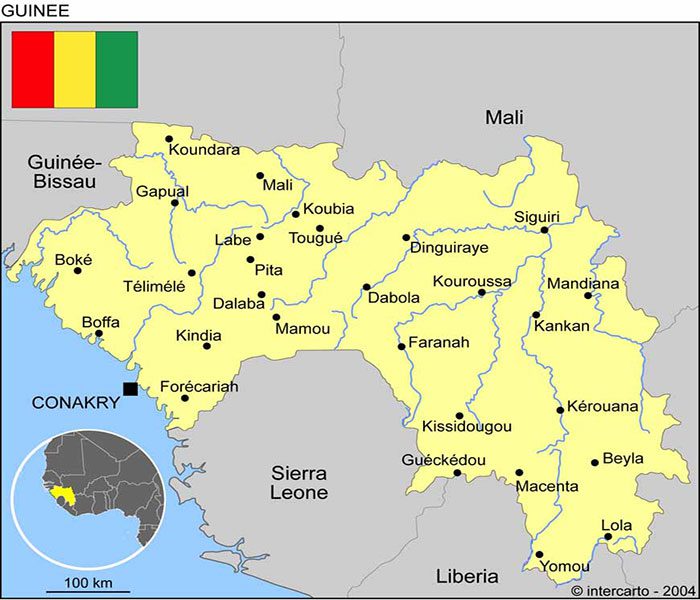The Guinean government has acknowledged the death of 30 people in inter-communal clashes in the southern town of Nzérékoré, in the aftermath of the controversial March 22 referendum.
“Thirty of our fellow citizens lost their lives during these unfortunate events” in Nzérékoré, the Prosecutor General of Kankan, Yaya Kairaba Kaba told the nation on national television on Tuesday.
According to him, sixty-seven other people were injured, dozens of houses, shops and workshops torched, and three churches destroyed.
Mr Kaba accused local opposition National Front for the Defence of the Constitution (FNDC) officials of orchestrating the violence and fueling tensions between communities.
He said the opposition had provided the pretext for the intervention of armed groups some of whom came from neighbouring Liberia while others emanated from the capital Conakry.
44 people face charges of murder, arson or criminal conspiracy, he said, while assuring Guineans that the country’s justice system is working to ensure that their trials will get underway “as soon as possible.”
The FNDC, a collective of parties, trade unions and civil society activists, which is leading the protest movement against President Alpha Condé on Wednesday criticised a government initiative “aimed at making the collective responsible for the killings.”
Ibrahim Diallo, a FNDC official said “it is difficult to understand why the arrests took place on one side only while on the other side, nobody was worried…it is a total injustice”.
The anti-Condé campaign, which was severely repressed on several occasions, resulted in dozens of deaths, which the opposition blamed on the security forces, who have repeatedly denied allegations of heavy-handedness.
Human rights defenders have consistently accused Guinea’s security operatives of acting with impunity.
The FNDC have notified the International Criminal Court about the supposed human rights violations in the country.
ARD/te/lb/as/APA


